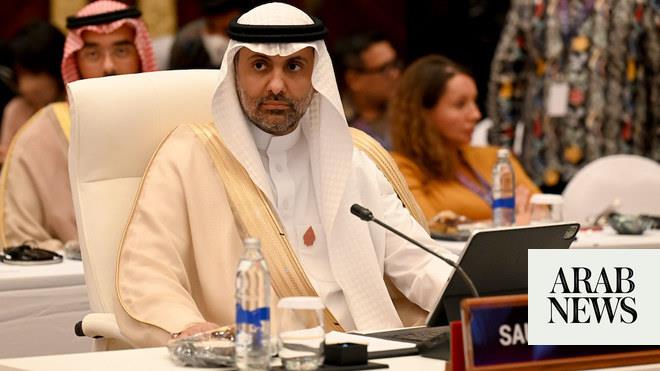
About 70 Libyans are travelling to Geneva in an effort to end their country’s political divisions by picking a new interim prime minister and a three-person presidency council.
The process, overseen by the UN, is being held amid rumours of bribery and allegations that it is being imposed on the country by the UN.
Twenty-one candidates have been nominated to be prime minister, and 24 to sit on the presidency council. Three women are standing, a breakthrough for Libya.
But there are doubts whether those picked by the UN-selected Libyan Political Dialogue Forum will be accepted by rival regimes in the east and west of the country. Each candidate needed two nominations from within the forum, and no forum member can stand for office.
The prime minister will remain in post until full national elections are held in December this year. Some candidates are standing as technocrats to oversee the road to the elections, but others have ambitions to become prime minister after the December elections.
One of those standing as a technocrat, Moin Kikhia, said he was concerned by allegations that votes would be bought. He told the Guardian: “In previous meetings there have been allegations of votes being bought for $1m. I can not and would not pay $2 for a vote. The UN promised to investigate the allegations, but no report has ever been published. It is very difficult for ordinary Libyans, fed up with corruption, to trust the process, especially when the rules are being made up as we go along.”
He added: “Anyone taking a leadership role in this administration must harbour no political ambitions for the subsequent election. Our role is to shape a stable, peaceful, increasingly prosperous future for this country, and to ready it for free and fair elections. When this is achieved, our job will be done”.
It has been agreed there will be a virtual hustings, with some of the questions drawn from a digital survey undertaken by the UN. The UN defends the ad hoc democratic process on the basis that the aim of the interim government is to prepare a roadmap for full national elections. It adds every effort has been made to ensure the forum represents the whole of Libya, including figures from the two parallel governments. A total of 49 forum members were handpicked by the UN, and 36 from the two rival assemblies.
The list of approved candidates for the presidency council includes Aguila Saleh Issa, head of the eastern-based parliament, the Government of National Accord’s defence minister, Saleh Namroush, and the former deputy prime minister Musa al-Koni. Both the GNA’s deputy prime minister, Ahmed Maiteeq, and the interior minister, Fathi Bashagha, once seen as close to the Muslim Brotherhood, are standing for the post of prime minister and have been working hard to build international support.
It is expected in Geneva delegates from east and west will investigate deals whereby forum members from the wast will ask delegates from the west to back their candidate for the presidency council in return for backing someone from the west for the prime ministership.
Five days have been set aside by the UN for the forum to elect the new leadership with some forum members, due to Covid restrictions, not travelling to Switzerland but instead voting remotely.
It is not clear whether Libya’s many external players including Russia, the United Arab Emirates and Turkey will accept the outcome, but Europe and a newly engaged US are backing the process, and insist the outcome must be respected.
But Libyans themselves are concerned about the process not leading to the promised elections. One forum member, Elham Saudi, director of Lawyers for Justice in Libya, said: “If candidates for the interim government have ignored the very, very limited eligibility criteria and have ‘overlooked’ Libyan law, what guarantees do we have that they will implement the roadmap or hold elections?”
But the UN’s writ is largely dependent on persuasion and the exhaustion of ordinary Libyans with a corrupt political class that seems unwilling to share power. The UN was told on Friday that there had been more than 80 breaches of the UN arms embargo recorded by the UN monitoring operation. The UN said the embargo breaches were being committed equally by both sides.
A Libyan-agreed deadline of 23 January for as many as 20,000 foreign troops and mercenaries to leave the country has come and gone, with no troops leaving, but the ceasefire signed on 23 October is still holding.
The complex process first gives a chance for each regional bloc to elect a member to represent them on the presidency council, but if no single candidate reaches 70% of the vote, the whole forum will elect a winner.
Any victorious candidate will have to declare their assets, and those of their spouse in Libya and abroad.
One of their key tasks will be to oversee a referendum on a new constitution, but the new body requires the endorsement of Libya’s parliament, the house ofrepresentatives. If that is not forthcoming the issue returns to the dialogue forum.









